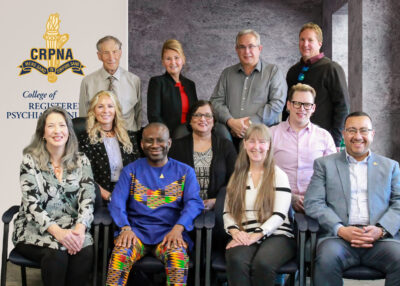The College of Registered Psychiatric Nurses of Alberta (CRPNA) is the legislated regulatory body that regulates the psychiatric nursing profession in a manner that protects and serves the public.
Our mandate is to ensure that our registrants provide safe, ethical, and competent services to the public; through the exercise of the regulatory powers granted to the College under the Health Professions Act, Regulations, and Bylaws.
PROTECTING THE PUBLIC
The College of Registered Psychiatric Nurses of Alberta (CRPNA) regulates psychiatric nursing and exists to protect the public. This is done by setting standards for psychiatric nursing practice, supporting Registered Psychiatric Nurses (RPN) in meeting the standards and taking action when the standards are not met. The CRPNA:
- establishes and maintains a registration process that ensures those who practice as a RPN are qualified and competent;
- sets and maintains the standards of psychiatric nursing practice that a RPN must meet every day to ensure safe, competent and ethical registered psychiatric nursing care;
- approves psychiatric nursing education programs in Alberta to ensure RPNs get the education they need to perform the competencies of a RPN;
- receives and investigates complaints about the practice of a RPN and directs appropriate remedial or disciplinary actions as required.
The purpose of regulation is to ensure that RPNs practice in a safe, competent and ethical manner. To that end, self-regulation involves three overall principles: promoting good practice, preventing undesirable practice, and intervening when necessary.

Middle row left to right: Lisa Fetsch, Munira Peermohamed*, Nathan Henshaw
Front row left to right: Tonya Ratushniak, Adetoyese Oyedun, Judy Negrey, Hany Abdelhady
Absent from the photo: Sharon Martin, Dianne Johnstone
*Term expired
Happy National Nursing Week 2025
May 12, 2025Practice Direction – Medication Management
February 1, 2025


